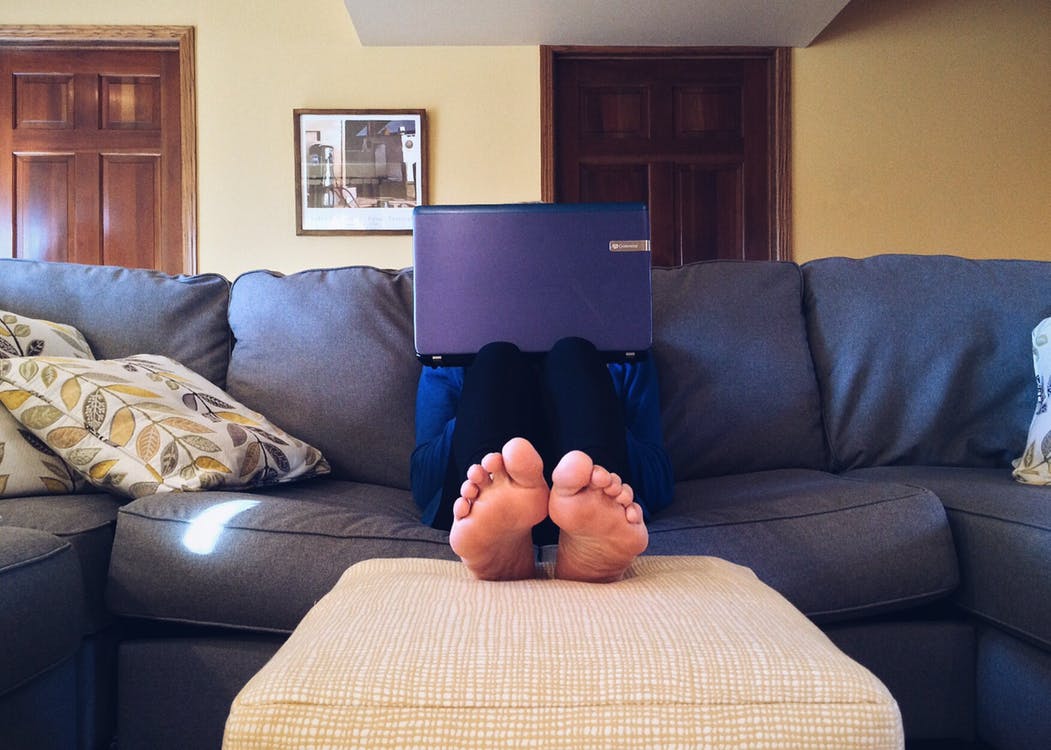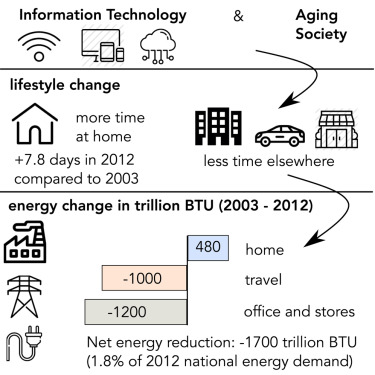Using the Internet to shop, work and chill at home reduces the US' energy use by almost 2%

Here's one side-effect of the Internet I hadn't expected: It may be reducing our carbon footprint -- by getting us to stay home more.
A group of academics studied data from the American Time Use Survey of the Bureau of Labor Statistics, looking at changes in American's daily routines between 2003 and 2012. They found that they're "spending considerably more time at home" -- about 7.8 more days at home in 2003, compared to 2012.
Why are Americans home so much more? Because technology has made it more viable to work from home, so they're traveling into the office less often; it's also easier to entertain yourself at home, so less trips to movie theaters and the like. These trends are particularly pronounced amongst younger Americans: 18- to 24-year olds spent fully 14 days more at home in 2012 than in 2003.
So, energy use at home goes up. We're using more computers, more TVs, more air-conditioning there. It's about 480 trillion BTUs more per year at home (using 2012 figures).
But! Since we're driving/traveling less often, we used 1,000 trillion less BTUs in transportation. And we used 1,200 trillion less BTUs in stores, offices and other "nonresidential" locations.
The upshot: Americans' energy use went down by a net 1,700 trillion BTUs, which is 1.8% of the national overall total usage.
A chart that summarizes it ...
As the researchers point out, this migration of activity to the house has public-policy implications. If we wanted to make the country evermore efficient in its use of energy, we should probably focus a bit more on energy consumption in the home, since this is where the locus of daily action is shifting:
What do our results imply for energy policy? One issue is shifting priorities for energy efficiency policies. The EPA Cafi(C) standards for automobile efficiency are arguably the centerpiece of efficiency improvement efforts by the federal government. If, however, trends toward decreased vehicle use continue, compounded by car sharing, this reduces the energy savings according to improved vehicle efficiency. While spending time at home is, per minute, much less energy intensive than driving, people use an increasing portfolio of energy-consuming ICT devices to enhance their time at home.62 Given these trends, additional emphasis on improving the efficiency of consumer electronics and home appliances might be warranted.
Some caveats, of course: As Megan Guess points out over at Ars Technica, this study doesn't capture all energy use that might be related to this new burst of cocooning. Maybe there's an increased use of particular types of tech at home -- laptops? home-style air-conditioning, as opposed to central, office-style a/c? -- that requires additional emissions in manufacture, and this study wouldn't capture that.
But if even most of this analysis holds up, it's damn interesting stuff.
(CC-licensed image via Pexels)